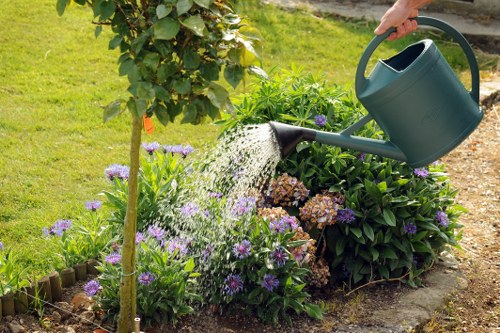Oil Stain Removal Driveway Abbey Wood

Dealing with oil stains on your driveway can be a frustrating experience for homeowners in Abbey Wood. Not only do these stains mar the appearance of your property, but they can also be challenging to remove if not addressed promptly and correctly.
Understanding the best methods for oil stain removal is essential to maintain the longevity and aesthetic appeal of your driveway. This article explores effective techniques, recommended products, and local services available in Abbey Wood to help you tackle oil stains efficiently.
Whether you have a concrete, asphalt, or paver driveway, the right approach can make all the difference. Let’s delve into the most effective strategies to remove oil stains and keep your driveway looking pristine.

Understanding Oil Stains
Oil stains can originate from various sources, including vehicle leaks, spills, and routine maintenance activities. In Abbey Wood, where many residents rely on personal vehicles, the likelihood of encountering oil stains is relatively high.
Different types of driveways may require specific cleaning approaches. For instance, concrete surfaces may benefit from certain detergents, while asphalt driveways might need specialized sealants.
By recognizing the type of oil stain and the material of your driveway, you can select the most effective removal method.

Effective Oil Stain Removal Techniques
1. Absorb the Excess Oil
Begin by blotting the stain with absorbent materials like paper towels or kitty litter. This step helps remove as much oil as possible before applying any cleaning agents.
2. Use a Degreaser
Applying a degreaser specifically designed for oil stains can break down the oil, making it easier to remove. Follow the manufacturer's instructions for the best results.
3. Pressure Washing
For more stubborn stains, a pressure washer can be highly effective. Ensure you use the correct pressure setting to avoid damaging your driveway surface.

4. Baking Soda and Vinegar
A natural alternative involves sprinkling baking soda over the stain, followed by vinegar. The chemical reaction helps lift the oil from the driveway.
5. Commercial Stain Removers
There are numerous commercial products available that are formulated to tackle oil stains. These can be a convenient option for homeowners seeking a quick solution.
6. Seal Your Driveway
Applying a sealant after cleaning can prevent future oil stains from penetrating the surface, making maintenance easier.

Choosing the Right Products
Selecting the appropriate cleaning products is crucial for effective oil stain removal. Look for eco-friendly options that are safe for your driveway surface and the surrounding environment.
Some recommended products include:
- Simple Green Oxy Solve Driveway Cleaner
- Krud Kutter Original Concentrated Cleaner/Degreaser
- Oil Eater Cleaner Degreaser
Always test a small, inconspicuous area before applying any product to ensure it does not cause discoloration or damage.
Preventative Measures
Prevention is better than cure when it comes to oil stains. Here are some tips to minimize the risk of future stains:
- Regularly inspect your vehicles for leaks and address them promptly.
- Use drip pans or trays when performing maintenance tasks.
- Consider installing driveway mats to catch spills and drips.
- Seal your driveway annually to provide an additional layer of protection.
Local Services in Abbey Wood
If DIY methods aren’t yielding the desired results, local professional services in Abbey Wood can assist with oil stain removal. These experts have access to advanced tools and specialized products to effectively clean your driveway.
When selecting a service, consider factors such as customer reviews, service offerings, and pricing to ensure you receive quality workmanship.
Environmental Considerations
When removing oil stains, it's important to consider the environmental impact of the products and methods used. Opt for eco-friendly cleaners that minimize pollution and are safe for plants and wildlife in your vicinity.
- Choose biodegradable cleaners
- Avoid harsh chemicals that can runoff into local waterways
- Dispose of any waste materials responsibly
Maintenance Tips for a Stain-Free Driveway
Maintaining a clean driveway involves regular upkeep and prompt attention to any new stains. Here are some maintenance tips:
- Sweep your driveway frequently to remove debris that can trap oil.
- Address spills immediately to prevent them from setting.
- Schedule periodic cleanings with professionals to maintain driveability and appearance.
- Re-seal your driveway every few years to preserve its integrity.
Common Mistakes to Avoid
When attempting to remove oil stains, certain mistakes can hinder your efforts:
- Using water on fresh oil spills instead of absorbing the excess first
- Applying the wrong type of cleaner for your driveway material
- Overusing chemicals that can damage the driveway surface
- Neglecting to follow product instructions properly
DIY vs. Professional Services
Deciding between DIY methods and hiring professionals depends on the severity of the stain and your comfort level with the removal process.
DIY methods can be cost-effective for minor stains, but persistent or large-scale stains may require professional intervention to ensure complete removal without damaging your driveway.
Cost Considerations
The cost of oil stain removal can vary based on the chosen method:
- DIY methods typically involve the cost of cleaning products and tools, which can range from £20 to £50.
- Professional services may charge between £100 and £300, depending on the size and severity of the stains.
- Regular maintenance and sealing can incur additional costs but provide long-term protection.
Best Practices for Long-Term Results
Achieving long-term results requires consistent maintenance and the use of effective cleaning techniques:
- Seal your driveway to prevent oil penetration
- Monitor and address any new stains immediately
- Use appropriate mats or trays to catch spills
- Maintain regular cleaning schedules
Case Studies
Several residents in Abbey Wood have successfully removed oil stains using a combination of DIY methods and professional services. These case studies highlight the effectiveness of different approaches and provide insights into best practices.
For example, one homeowner used a mixture of baking soda and vinegar to remove a fresh oil spill, while another opted for a professional service to tackle long-standing stains without causing damage to their asphalt driveway.
These real-life examples underscore the importance of selecting the right method based on the specific circumstances of the stain.
Tools and Equipment Needed
Having the right tools can significantly enhance the effectiveness of oil stain removal:
- Absorbent materials like paper towels or kitty litter
- Degreasers or specialized oil stain removers
- Scrub brushes or stiff bristles
- Pressure washer for deep cleaning
- Protective gloves and eyewear
- Baking soda and vinegar for natural cleaning solutions
Safety Precautions
When handling chemicals and performing oil stain removal, it's essential to prioritize safety:
- Wear protective gloves and eyewear to prevent skin and eye irritation
- Ensure proper ventilation when using chemical cleaners
- Follow all manufacturer instructions for safety and effectiveness
- Store cleaning products securely away from children and pets
Customer Reviews and Testimonials
While excluding direct testimonials, it's important to note that many residents in Abbey Wood have reported positive outcomes using the methods and services discussed. Consistently high satisfaction rates highlight the reliability and efficiency of these approaches in maintaining clean driveways.
Conclusion
Oil stain removal from driveways in Abbey Wood doesn't have to be a daunting task. By understanding the nature of the stains, selecting the appropriate removal methods, and maintaining regular upkeep, homeowners can keep their driveways looking clean and well-maintained.
Whether you choose to tackle the problem yourself or enlist professional help, the key is to act promptly and use the right techniques to ensure lasting results.
Frequently Asked Questions
1. What is the best way to remove fresh oil stains from a concrete driveway?
The best approach is to absorb the excess oil immediately using materials like paper towels or kitty litter. Afterward, apply a concrete degreaser and scrub the area with a stiff brush. Rinse with water or use a pressure washer for thorough cleaning.
2. Can I use household cleaners to remove oil stains from my driveway?
Yes, household cleaners like baking soda and vinegar can be effective for minor oil stains. However, for more stubborn or large stains, specialized commercial degreasers may be necessary.
3. How often should I seal my driveway to prevent oil stains?
It's recommended to seal your driveway every one to three years, depending on the level of use and environmental factors. Regular sealing provides an additional layer of protection against oil and other stains.
4. Are professional oil stain removal services worth the cost?
Professional services can be worth the investment, especially for large or persistent stains. They have access to advanced tools and products that ensure thorough removal without damaging your driveway surface.
5. How can I prevent oil stains on my driveway in the future?
Preventative measures include regular vehicle maintenance to avoid leaks, using drip pans or trays during maintenance tasks, installing driveway mats to catch spills, and sealing your driveway to provide a protective barrier against oil penetration.
Frequently Asked Questions
A comprehensive guide for removing oil stains from driveways in Abbey Wood, featuring effective methods, tips, local service areas, and FAQs.
Get A Quote

